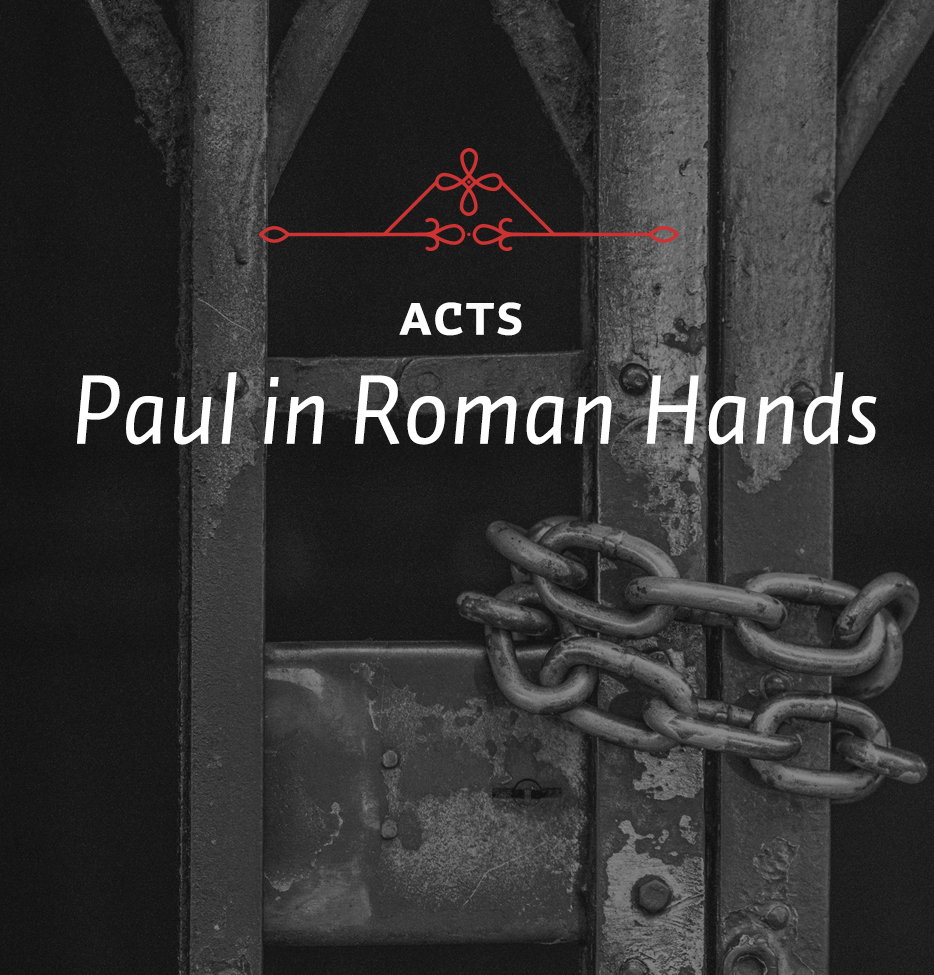We move to the second stage of the story, and here we find Paul with his own people, represented by the Sanhedrin. This was because the Roman commander, who recognized that he still did not have the full story and could not understand why the Jews were so incensed against Paul, commanded the Sanhedrin to make a case. The text says, “The commander wanted to find out exactly why Paul was being accused by the Jews” (Acts 22:30). He must have thought that once he had a concrete accusation he would be able to decide what to do.
There is an interesting contrast here between the Romans, on the one hand, into whose custody Paul had fallen, and the Sanhedrin, the leaders of God’s people, on the other. I have spoken of the proper function of the state, namely, the promotion of justice and the maintenance of order. The Romans were doing that or trying to. But it was entirely different in the Jewish court. When we come to the leaders of the Jewish state, we find that neither a concern for justice nor the maintenance of the public order was present. These men were not interested in justice. They just wanted to get rid of Paul. And not order either! The disorder that had taken place in the courtyard of the temple the day before and was repeated even after Paul’s address to the people in Aramaic, now burst forth even on the floor of this august assembly.
Paul was brought before the Sanhedrin and was given a chance to speak. He began, “My brothers, I have fulfilled my duty to God in all good conscience to this day….” (Acts 23:1). That was undoubtedly only the opening line of an address Paul was prepared to deliver. But he didn’t get a chance to make his defense. The presiding high priest, Ananias, a secular and most ungodly man who perished during the Jewish rebellion at the hands of his own people, ordered those standing near Paul to strike Paul on the mouth, so incensed was he that this great apostle to the Gentiles would claim that he possessed a clear conscience.
To strike an unconvicted person was illegal, of course, as Paul, who was a well-instructed Pharisee, knew. He retorted, “God will strike you, you white-washed wall. You sit there to judge me according to the law, yet you yourself violate the law by commanding that I be struck!” (v. 3).
Justice? If one were to seek justice in this situation, he would be far more likely to get it from the Romans.
Here are two questions:
1. What commandment of the law was Paul referring to when he claimed that the high priest had caused him to be struck illegally? There is no verse in the Old Testament exactly like this, but Paul may have been thinking of Leviticus 19:15. A contemporary saying ran: “He who strikes the cheek of an Israelite strikes, as it were, the glory of God.”1 Whatever the reasoning was, Paul’s point was obviously valid. Until Paul was convicted he could not rightly be punished.
2. The second question grows out of what happened next. When Paul rebuked the high priest for his illegal action, someone who was standing nearby reproached him for speaking to the high priest disrespectfully. Paul had not known that he was speaking to the high priest. But once he was told this had been the case, he admitted that his remark had been improper. He said, “Brothers, I did not realize that he was the high priest; for it is written: ‘Do not speak evil about the ruler of your people’” (v. 5). The reference is to Exodus 22:28.
The question is: Why didn’t Paul recognize the high priest? After all, he was looking “straight at the Sanhedrin,” according to verse 1. We will answer that question in tomorrow’s study.
1Everett F. Harrison, Acts: The Expanding Church (Chicago, IL: Moody, 1975), 345.






